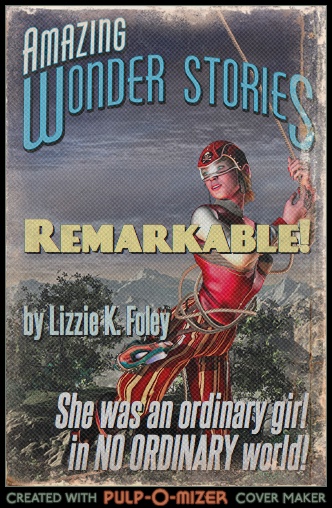So, yesterday I posted the news report about Kai, the surfer who hitched a ride with a guy who decided that he was Jesus, and that he was going to kill people. In an act of heroism that has already been immortalized in gif form (Smash, Smash, Suh-mash!), Kai took a hatchet to thought-he-was-Jesus guy’s head and saved the life of a Green Bay Packers fan.
I also posted of the long-form interview with Kai, which was one best line after another.
I’m not entirely sure why, but I felt compelled to produce a transcript of the interview. KAI is Kai, and JR is Jessob Reisbeck, the KMPH reporter who interviewed him.
The key thing to remember is that “police” is pronounced “POH li SEE”
———————————————
KAI: I’m one of the heroes.
JR: Can we talk to you? Do you mind?
KAI: What do you want to talk about?
JR: What happened today.
KAI: Wuu, went straight out of dogtown. Skateboarding, surfin’ it up. Before I say anything else, I want to say no matter what you done, you deserve respect. Even if you make mistakes, you loveable, and it doesn’t matter your looks, skills, your age, your size, or anything, you’re worthwhile. No one can ever take that away from you.
Now, this stuff right here, I was driving and I uh bfff – I was in the passenger side of this fucker’s car, and he comes over on there. He was over by the recycling center. He says, “Oh, when I was in the Virgin Islands, thirty years old on a business trip, I I uh I fucked this fourteen year old.”
I was like, “You what?”
He’s like, “I raped this fourteen year old.” He starts crying, gives me a big hug.
He’s like this fuckin’ three hundred pound guy. I’m like, “Holy Shit! He must be fuckered, man. Like, what’s he talking about?” I didn’t take him seriously at first.
He comes driving down this way, he’s like, “You know what? I’ve come to realize, I’m Jesus Christ, and I can do anything I fucking want to, and watch thi . . .” Bam! And he smashed into this fuckin’ guy right there, pinned him in between that fuckin’ truck, and so I fuckin’, I hop out, I look over, the guy’s pinned there.
I mean, like, freight train riders know this, like, if you get pinned between something, do not fuckin’ move that shit, otherwise you bleed out. Like, motherfuckin’ I ran in, I grabbed the keys. He’s fuckin’ sitting there like nothing even happened, and, like, fuckin’, like that.
If he had started driving that car around again, man, there would have been a hell of a lot of bodies around here.
Fuckin’ I hop on out, and so, I grab the bag. I threw it over by that pole right there, and then fuckin’ buddy gets out and there’s these two women are trying to help him. He runs up and he grabs one of them, man. Like a guy that big can snap a woman’s neck like a pencil stick.
So I fuckin’ ran up behind him with a hatchet. Smash. Smash. SU-MASH! Ye . . .
JR: The lady said you saved her life.
KAI: She was the one who got grabbed by that fucker. And you know what? Fuck is cool. That guy ain’t. Shii . . .
JR: How’d you, how’d you get in his car? How are, how did you . . .
KAI: I was hitchhiking. I was, well, good thing I was hitchhiking. Yeah, people say “Don’t hitchhike. Well, this is what happens.” Well, yeah, well, at least I was here.
JR: So he did this on purpose.
KAI: Dude! That guy was fuckin’ kooked out, man. Like, he’s beyond howlay, like, I don’t even see any breath in him. You know what I’m saying?
JR: Can, can I get your name? And where you’re from, if you don’t mind.
KAI: I’m Kai. Straight outta dog town.
JR: Can I get the spelling . . .
KAI: K A I
JR: Do you have a last name?
KAI: No, bro. I don’t have anything.
JR: Where are you from originally? Are you from Fresno area?
KAI: Sophia, West Virginia.
JR: No kidding. How old are you?
KAI: I can’t call it.
JR: Okay. Have you ever experienced anything like today? And what made you take the actions that you did?
KAI: That woman was in danger. He just finished, uh, what looked like, at the time, killing somebody. And if I hadn’t of done that, he would’ve killed more people. So, he’s dead. Good.
JR: You ever experienced anything like that, Kai?
KAI: Well, this one time, I was in an orchard, and this fuckin’ guy starts, starts beating on this woman who he calls “his.” So I walked on over, and I started smashing him in the head. I . . . you see all these teeth marks right here for the camera? Yeah, I started smashing him in the head and in the teeth. Busted out all his teeth.
Mother fuckin’ the Sheriffs, not the Police enforcers fuckin’ show up and start like, uh, they’re like, “So, what, what happened? I mean like ah, just give me any old name and just give me old, uh, fuckin’ birthdate whatever, just uh. Yeah.”
What happened today after, after the . . . you’re obviously free now, but were you arrested? What was the process? What did they do to you when the came out? Obviously they found out that you did the right thing, but at the time, from the accident until now, where have you been?
Well, you started, started following I [le-ack]. I, I cleaved his mother fuckin’ head wide open with a hatchet. He stood up like he was pulled right up, right, and like, fuckin’, I’m like, I’m like, bro, if you’re fuckin’ Jesus Christ, I’ll be the antichrist, man. Like fuck that shit.
And he starts following me off this way, so I figure I’ll lure him right away from the crowd, so I’m running off this way, I, I got a hatchet in one hand, a motherfuckin’, um, this bag I’m carrying over with another hand, I start running off that way, and so, uh, a couple of the people who was bystanders to it came over and told me to stop, and I was like, “Why stop?” and he was like, “The cops are already on their way.”
I was like, “Is he back up and doing anything?” and somebody said that he was masturbating in front of this school or fuckin’ whatever this place is right here. Ye . . .
JR: Were you questioned by police? Were you taken into custody? What happened? I mean, obviously . . .
KAI: I was questioned, I was put into the back of the, uh, Sheriff’s wagon, wasn’t the Polices that fuckin’ pulled I over, you know what I’m saying? Yeah, so, like, I got put in the back of the, uh, Sheriff’s wagon. The Sheriff was like, “What happened here?” Took down a statement. I told him everything I just told you. And fuckin’ let me out, said I couldn’t grab all this stuff until I, uh, I had finished, they had finished with something, you know what I mean? And like brought me back over here so I could be in front of this thing, like, this fuckin’ car right here.
It was fuckin’ gnarly, man. Holy shit. That was like the biggest wave I’ve ever ridden in my life.
JR: What’s next for you, Kai?
KAI: Hopefully some surfing. If anybody’s watching this somewhere else, and they’ve got a Mini Mal they could lend a guy, with a wetsuit. I’d love to test out Mavericks.
JR: Would you do it again?
KAI: Club him in the head with a hatchet? You know, if I could go back in time, I’d go back over to where I was at that recycling center and he said that he had raped that chick over in the Virgin Islands. It doesn’t matter where you at. If you can fuckin’ just spend a bunch of money and do whatever the fuck you want, you know, that’s not right. If I, If I could go back in time, I would have dabbed him up right there.
JR: It didn’t seem like you have any concern for yourself. You’re all about, I mean, doing the right thing, and not even worrying about Kai first.
KAI: I don’t have any family. Like, as far as, as far as anyone I grew up with is concerned, I’m already dead. So, whatever.

